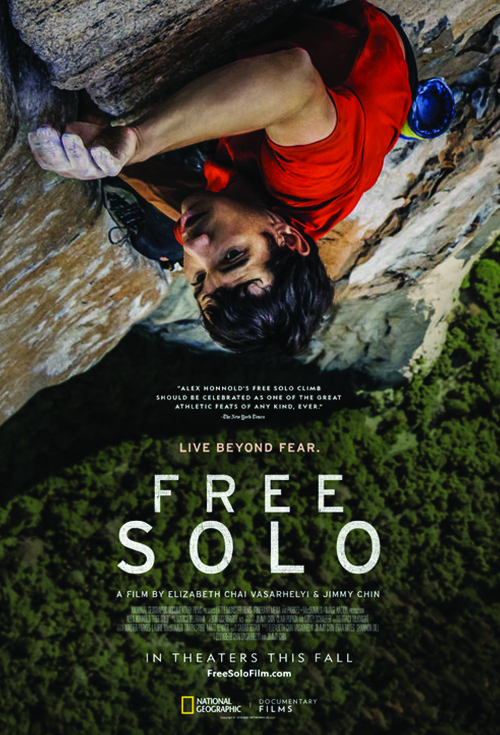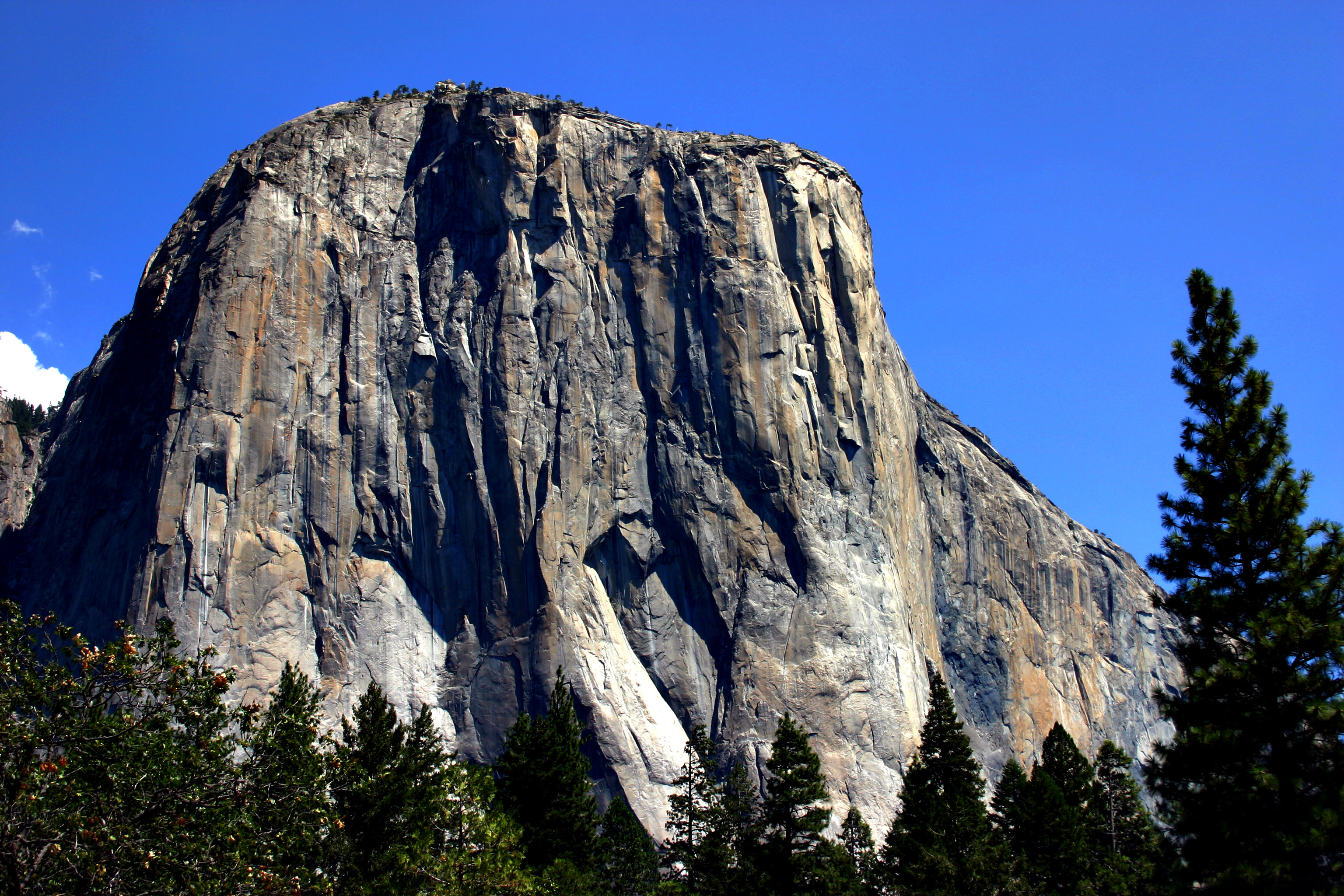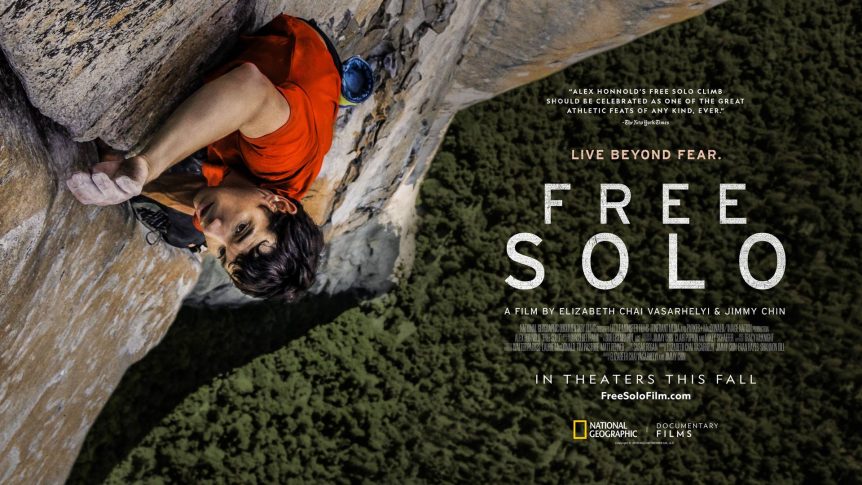I just watched “Free Solo” the other day, and my mind was completely blown. I felt like I needed to make this post to really reflect on the documentary because I was feeling a lot of different things during the film!
Disclaimer: There will be spoilers in this review.
“Free Solo” Review
So “Free Solo” is about Alex Honnold, who enjoys free solo climbs without any ropes, harnesses, or protective equipment. Since 8 or 9 years ago Honnold had this dream to climb El Capitan, a 3,000-foot climb, and he is currently the first and only human being to have completed it so far (spoiler alert?). It still trips me out that people do this for fun. From watching the movie it seems there is a portion of people who only feel alive when they challenge themselves in such extreme ways.
The documentary was not only a display of an extraordinary human feat but also a glimpse of the psychology behind a different type of human being. It opened my eyes to another way of living completely opposite of mine, not just in his environment and interests but also in how a human being can think. Honestly it felt like watching another species in its natural habitat…it was so foreign to me and almost unimaginable. However, I’m glad to have watched it because it helped explain the thoughts and behaviors of people who have less empathy as compared to the average human being.

Aside from the suspenseful emotions from the actual climb itself, there were many times my feelings and thoughts peaked throughout the film. For me, I think the three biggest themes I took away were the concept of fear, death, and the balance between stoicism and empathy.
The Balance Between Logic and Emotion, Stoicism and Empathy
I’m going to go into Myers-Briggs a lot in this section, so I apologize if you’re not into that stuff.
I’ve been encountering this recurring theme of whether or not being too sympathetic/empathetic is a good or a bad thing. At my core I’m an INFJ (if you believe in Myers-Briggs), so I am a mix of logic and emotion. I do believe humans can be molded and that I can change my Myers-Briggs makeup overtime. We are all fluid beings. However, currently being an INFJ can be a contradictory, frustrating experience. “N” (intuition) makes me draw connections from abstract ideas versus taking things how it is, and this is further supplemented by my “F” trait (feeling versus thinking). It makes me a little too empathetic, I believe, and sometimes I overthink what’s going on in people’s minds versus just accepting what people say. With F&T (feeling and thinking) I’m a bit in the middle of the two letters so I’m still quite logical, and I’m a J (judging) which makes me want to organize my thoughts and structure everything. So I believe this makes me want to understand why it is I’m feeling different ways, and why others may be feeling other ways. As an INFJ I’m supposed to be “The Advocate”. There are many positives to the personality as you can see in the link, and apparently other INFJs include Martin Luther King Jr., Mother Teresa, and supposedly even Jesus! But the issue is “it is most important for INFJs to remember to take care of themselves. The passion of their convictions is perfectly capable of carrying them past their breaking point and if their zeal gets out of hand, they can find themselves exhausted, unhealthy and stressed.” This goes to show that too much empathy can go wrong.
Having gotten close to a few people who are less empathetic by nature, it created a need for me to understand people who lean more into the S&T (sensing and thinking) ways of life (versus N and F). It still is a difficult area for me to understand, but I feel like this movie gave me some perspective on what a super logical, non-emotional person thinks.
Death and Life Purpose
One of the scenes that really struck me was when Honnold talked about his friend dying from a climb. He basically responded with no remorse and that “it happens”. Honnold had problems in his past relationships where his ex girlfriends always thought he had issues. They would ask him “what if you die”, and he basically would respond that no one’s going to care as they’re going to find other boyfriends anyway. He talked about death as if it were no big deal, and it was shocking. Yes, in the end, we’re all going to die. But to actually talk about it in a way where your own mortality as well as the mortality of those around you doesn’t matter is quite unfathomable. I mean, for me to simply visualize a close one dying is one of the scariest things ever.
His current girlfriend asked if he cared about increasing his lifespan, especially in consideration for her and possible future children. To that, he basically responded “no”. It seemed Honnold did not care to live a longer life to be with and take care of his significant other. I personally would not be able to be with someone who lacked empathy to that extent, but it also fascinated me that there are people who can put up with it.
For his girlfriend, the meaning of life is happiness. For him, the purpose of life is “performance”. Honnold believed climbing El Capitan would be the closest thing to experiencing perfection as you have to perform at 100% or else you’ll fall to your death. This begs the question of whether or not it’s good to have so much empathy and whether or not happiness should be our goal. If Honnold cared too much about what other people thought, he wouldn’t have climbed El Capitan. His friends’ worries would have gotten in the way of him fulfilling his dream, and Honnold would be more focused on fulfilling his girlfriend’s needs to entertain the idea of risking his life.
It’s easy to call Honnold’s accomplishment of climbing El Capitan a major success. He’s currently the only human being to have ever achieved this feat. However, does success/performance trump happiness? And is he happy? In one of the scenes, Honnold fills out a personality test and pauses at a question surrounding happiness. I believe the film was trying to show that this question is something that stumps him because he either doesn’t really care about it or he’s not normally happy.
Perhaps the answer around life’s purpose is that we all have our own truths and personal legends, and that we can’t compare one life to another.

The Role of Nature vs. Nurture on Love and Fear
Just seeing this extreme person increased my ceiling for what’s possible but also made me realize I lacked understanding of these types of people.
I wanted to understand if Honnold’s being was a result of nature or nurture, and the movie tried to answer some of these questions by having Honnold do an MRI. He was shown a few scary images to see how his brain would activate. His amygdala worked, but the doctor found that his amygdala didn’t really respond while others’ would. It made it seem like nature was at play and perhaps he’s just wired differently than others. But the documentary then goes to show how as a kid, Honnold was never hugged and never heard the word “love”. He had to train himself in his early 20’s to practice hugging people. It was just a foreign concept to him. Having studied a bit of developmental psychology in the past, I understand that childhood development plays a significant role in your adulthood. Perhaps the way he grew up made him less sensitive. Honnold also discussed his philosophy on fear. He always wants to push his limits on fear and expand his comfort zone. This made me believe that his free solo climbs became less scary overtime as he kept doing them over and over, and it made me think his amygdala response could have been a combination of both nature and nurture.
If Honnold was able to condition his mind to be less fearful of stimuli from all the crazy climbs he’s done, it made me feel like I could condition myself to have less of a response to fearful situations. I dealt with severe anxiety about 1-2 years ago, but in order to overcome my GAD I gradually rewired my brain through different challenges I began attempting.
Conclusion
Okay, this post was less a review and moreso an analysis of my reactions from the film (probably an INFJ thing of drawing connections around abstract ideas). But review-wise, I give this movie a 10/10. Go watch it. I am considering rewatching it in theaters as it is available in IMAX during the first week of Feb, 2019.
So is it good to have to be extremely stoic or extremely empathetic?
For now, I’m going to say I need a balance of both stoicism and empathy. I’m probably more on the empathetic side of the spectrum, and I hope that I can move myself towards the more stoic side. This is my personal preference as there are a lot of feats I want to achieve, and in order for me to accomplish these feats, I’ll need to tone down the overthinking and fears. This means I’ll need to do some self improvement, and I am grateful to have watched this film as it motivates me in many different ways.
If you’ve seen “Free Solo”, what did you think? Let me know in the comments below!


Comments 1
“I’ve been encountering this recurring theme of whether or not being too sympathetic/empathetic is a good or a bad thing.”
This spoke to me so much because I think about it all the time. My empathy extreme empathy makes me so sad when I see others hurt. Especially kids. Especially animals. It motivates me to be better. To be nicer. More compassionate. But it hurts so much. Perhaps being more stoic would make life less painful for me, but would I be less caring? I’m so the opposite of Honnold. I wouldn’t say my extreme empathy makes me fearful. But it does make me feel others’ pain to the extreme. Not sure I want to stop feeling though.